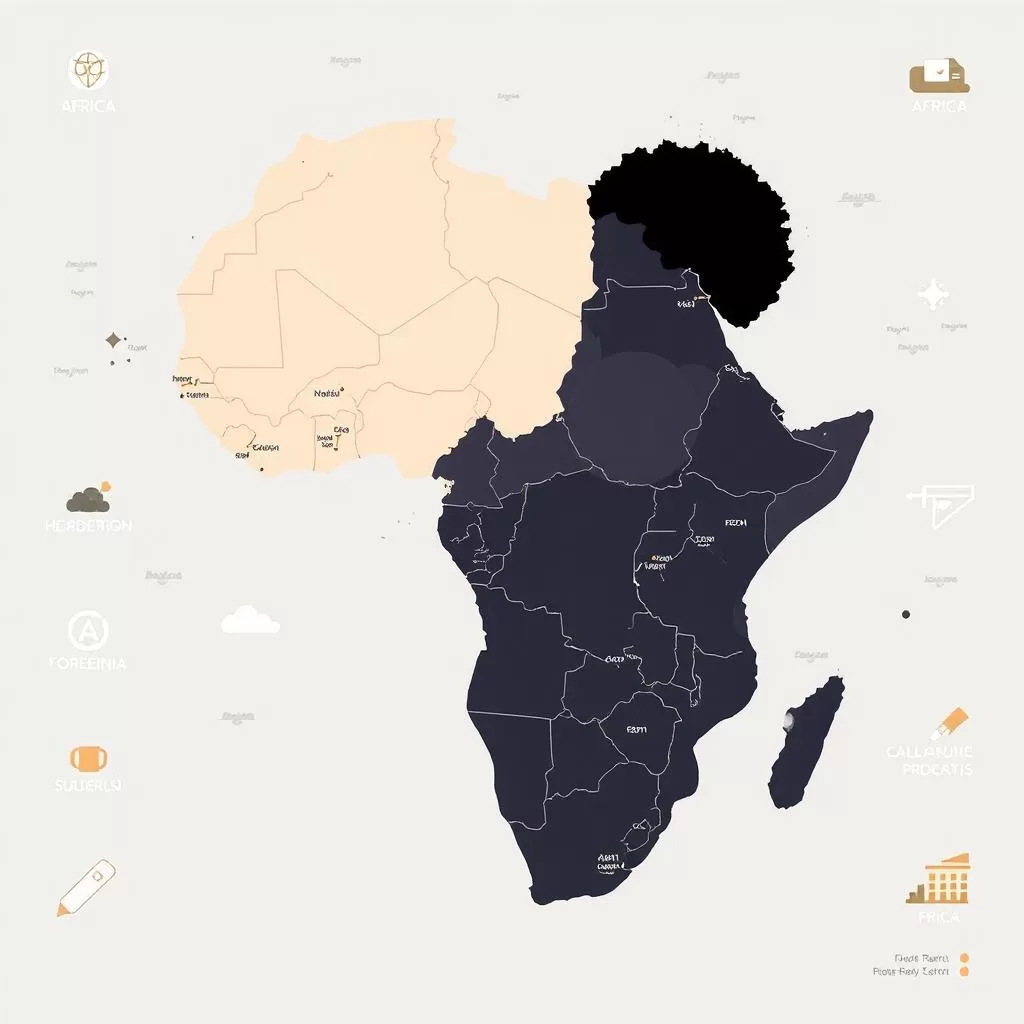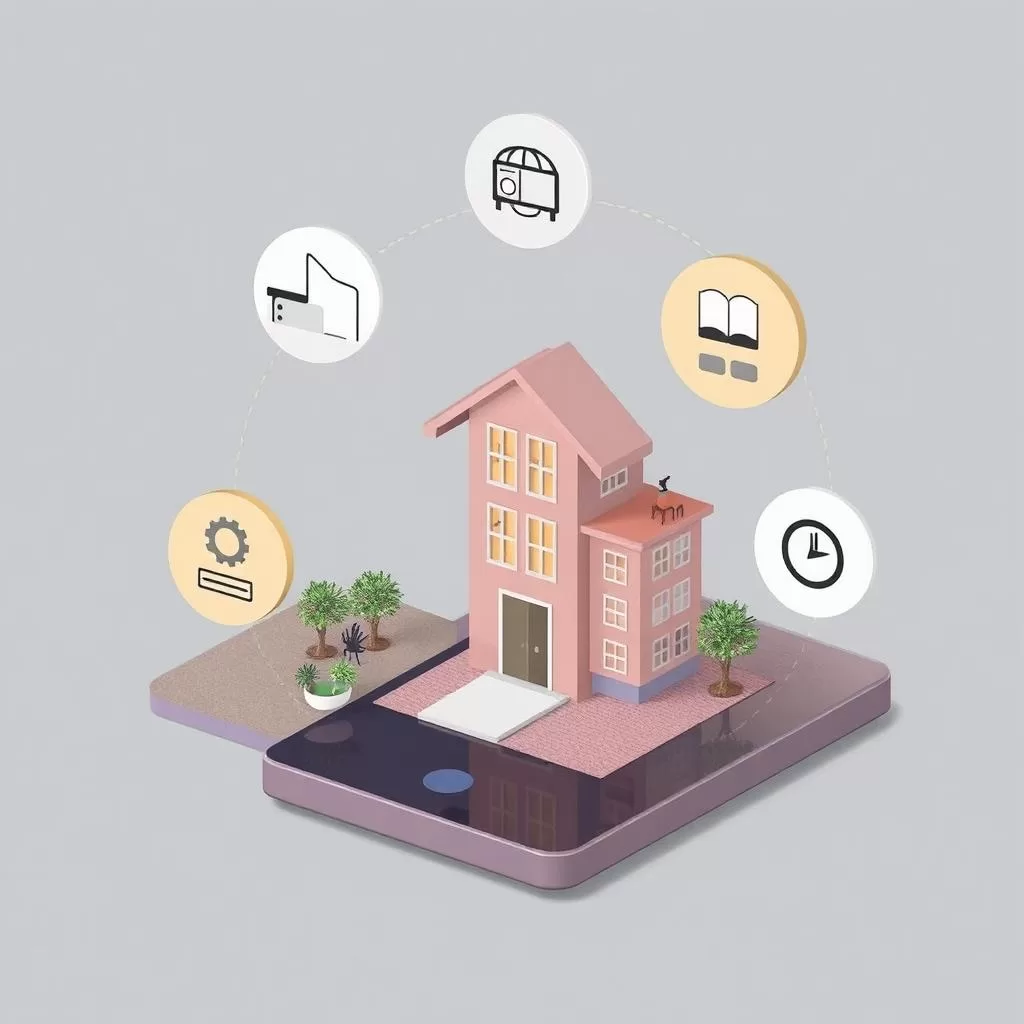Africa Top Tech Trends and Innovations Shaping it in 2025
Africa is experiencing a tech revolution, driven by mobile technology, fintech, AI, and renewable energy. With a fast-growing digital economy, rising internet penetration, and increasing startup funding, Africa is set to become a global technology hub. We explore top Tech trends and innovations in Africa, 2025.
But what are the key tech trends and innovations shaping the continent in 2025? How are these advancements transforming industries, businesses, and daily life across Africa?
What You’ll Learn in This Article:
- Challenges and the Future of Africa’s Tech Ecosystem: Delve into the obstacles facing Africa’s tech development and the steps needed to overcome them for a sustainable and prosperous future.
- Top 7 Tech Trends Shaping Africa’s Digital Future: Explore the emerging technologies that are set to revolutionize industries across the continent.
- How AI, Fintech, and Renewable Energy are Transforming Industries: Understand the role of artificial intelligence, financial technology, and clean energy in driving economic growth and innovation in Africa.
The Rise of Fintech & Digital Payments
Fintech is Africa’s fastest-growing tech sector, revolutionizing financial inclusion by providing mobile banking, digital payments, and blockchain-based solutions. This transformation is empowering millions across the continent with easier access to financial services.
- Digital Lending & Neobanks: Startups are providing instant loans and digital banking services without the need for physical branches, offering more accessible financial products to underbanked populations.
- Mobile Money Dominance: Mobile money services such as M-Pesa, Paga, and Flutterwave are expanding rapidly, enabling millions of people without traditional bank accounts to send, receive, and store money easily through their mobile phones.
- Cryptocurrency Adoption: Countries like Nigeria, Kenya, and South Africa are leading in cryptocurrency transactions, using digital currencies to bypass traditional banking systems and facilitate faster, cheaper cross-border payments.
💡 For example, Flutterwave, a Nigerian fintech unicorn, is simplifying online payments for African businesses. These are one of Africa top tech trends.
🔗 Related: How e-commerce is transforming Africa
Artificial Intelligence (AI) in African Businesses: One of Top Tech Trends in Africa
AI is transforming industries across Africa. It is bringing innovative solutions to key sectors such as healthcare, agriculture, finance, and education. As a result, efficiency is improving. In addition, accessibility is increasing across these areas.
- AI in Healthcare: AI-powered systems are revolutionizing disease detection and diagnosis in Africa. They use machine learning algorithms to analyze medical data. Moreover, they scan images and predict health conditions with greater accuracy. This allows for faster diagnoses and better healthcare outcomes, especially in remote areas with limited access to specialists.
- AI-Powered Chatbots: Businesses across various industries are leveraging AI chatbots to provide customer support. As a result, service response times are improving. Furthermore, operational costs are being reduced. These chatbots offer 24/7 assistance and are increasingly being used for handling inquiries, troubleshooting, and processing transactions.
- Smart Farming Solutions: AI-driven tools are helping African farmers improve crop yields. They predict weather patterns and monitor soil health. In addition, they detect diseases early, allowing for timely intervention. These technologies help farmers make more informed decisions, reducing waste and increasing food production efficiency.
💡 For example, Zipline uses AI-powered drones to deliver medical supplies in Rwanda and Ghana.
E-commerce Boom & Digital Marketplaces
Africa’s e-commerce industry is experiencing rapid growth, fueled by increasing mobile penetration and the rise of digital payments. This sector is becoming a key driver of economic growth and innovation across the continent.
- Logistics Tech Innovations: Startups like Kobo360 and Lori Systems are enhancing the delivery process. They improve logistics efficiency and optimize transportation networks. As a result, these innovations help overcome infrastructure challenges across the continent. Moreover, they ensure timely deliveries and lower costs for both retailers and consumers.
- Jumia, Takealot, and Kilimall Expansion: Major online retailers like Jumia, Takealot, and Kilimall are expanding their operations across the continent. They offer a wide range of products, from electronics to groceries. As a result, more consumers are gaining access to convenient and diverse shopping options. These platforms are making it easier for consumers to shop online and for sellers to reach new markets.
- Social Commerce: Many African entrepreneurs are tapping into social media platforms like WhatsApp and Instagram to sell products directly to consumers. As a result, social commerce is becoming a major part of the e-commerce landscape. It allows for direct engagement and supports personalized marketing strategies.
💡 For example, Jumia, Africa’s leading e-commerce platform, is integrating AI for personalized shopping experiences.
Renewable Energy & Tech-Powered Solutions
In many African regions, energy shortages remain a significant challenge, but technology-driven solar and renewable energy solutions are offering viable alternatives to traditional power sources.
- EV & Clean Tech Innovations: Startups are also driving the transition to electric mobility with electric vehicle (EV) solutions and clean technologies. This includes innovations in electric cars, bikes, and buses, as well as the development of related infrastructure like charging stations. These advancements aim to reduce dependence on fossil fuels, lower carbon emissions, and contribute to a cleaner environment.
- Off-Grid Solar Solutions: Companies like M-KOPA and Sun King are providing affordable solar energy systems to rural households that are not connected to the national grid. These off-grid solar solutions are helping to bring electricity to underserved areas, improving access to lighting, education, and mobile charging.
- Smart Grids: AI and IoT technologies are playing a crucial role in optimizing electricity distribution across Africa. Smart grids allow for real-time monitoring and management of electricity flow, helping to reduce energy wastage, improve efficiency, and ensure more reliable power supply.
💡 For example, Kenya is investing in electric buses and solar-powered charging stations for green mobility.
EdTech & Online Learning Platforms: One of Top Tech Trends in Africa
EdTech startups are revolutionizing education access across Africa, providing innovative solutions that are breaking barriers to learning and enhancing educational outcomes.
- E-Learning Apps: Startups like uLesson (Nigeria) and Eneza Education (Kenya) are making education more accessible to students, particularly in rural areas with limited access to traditional schooling. These platforms offer mobile-friendly learning tools, allowing students to learn at their own pace and access quality educational content on-demand. By leveraging smartphones, these apps are creating opportunities for millions of students to receive education outside the traditional classroom setting.
- VR & AI in Education: Virtual Reality (VR) and Artificial Intelligence (AI) are transforming the way students learn by providing immersive and personalized experiences. VR allows students to engage in practical learning experiences, such as virtual field trips or lab simulations, that would otherwise be unavailable due to infrastructure limitations. AI-powered tools also personalize learning by adapting to students’ individual needs, enabling tailored lesson plans, real-time feedback, and predictive assessments to support learning outcomes.
- Coding Schools & Digital Skills Training: As Africa’s tech ecosystem grows, so does the demand for digital skills. Many EdTech startups are offering coding boot camps, programming courses, and digital skills training to equip the next generation with the tools needed for the future job market. Institutions such as Andela (Nigeria) and The African Institute of Mathematical Sciences (AIMS) are training Africans in software development, AI, and other in-demand tech skills, creating a skilled workforce that can thrive in the digital economy.
These EdTech innovations are reshaping education across the continent, offering scalable solutions to bridge the education gap, improve learning quality, and prepare students for a tech-driven future.
💡 For example, ALX Africa is providing free tech training for young Africans in AI, software development, and cloud computing.
The Growth of Smart Cities & IoT Adoption
Africa is embracing smart city innovations, using IoT (Internet of Things) for traffic management, security, and waste management.
- Smart street lighting – AI-powered lights adjust based on traffic flow.
- IoT-powered waste management – Smart bins optimize garbage collection.
- Traffic monitoring – AI-powered cameras and sensors improve road safety.
💡 For example, Rwanda’s Kigali Smart City Project is deploying AI and IoT for urban management.
Cybersecurity & Data Protection Innovations
As Africa’s digital economy grows, so do cybersecurity threats. Governments and businesses are investing in:
- AI-driven cybersecurity solutions – Detecting threats in real-time.
- Data protection laws – Countries are enforcing stricter data privacy regulations.
- Blockchain for security – Ensuring safer online transactions.
💡 For example, Nigeria’s Data Protection Regulation (NDPR) is improving cybersecurity awareness across businesses.
Challenges Facing Africa’s Tech Ecosystem
- Internet Connectivity Gaps: While urban centers across Africa are witnessing rapid digital growth, many rural areas still face significant internet connectivity gaps. These regions often struggle with access to high-speed internet, which hinders their ability to engage fully in the digital economy. Without reliable connectivity, rural communities miss out on opportunities in e-commerce, education, and digital financial services. Bridging this gap is crucial for fostering inclusive growth and ensuring that all Africans can benefit from the technological revolution.
- Funding Challenges for Startups: Tech startups across Africa continue to face significant funding challenges. Many entrepreneurs struggle to access venture capital due to a lack of established funding ecosystems and investor reluctance to invest in high-risk, early-stage businesses. This limited access to capital stifles innovation and slows the growth of promising startups. As a result, many African tech founders are forced to bootstrap or seek alternative funding sources, which can limit their scalability and impact. Expanding access to venture capital and creating more robust funding networks is vital for nurturing the continent’s growing tech ecosystem.
- Regulatory Hurdles: Strict regulatory frameworks in some African countries are creating significant barriers for tech companies and startups. Governments often impose complex laws and restrictions that slow down innovation and make it difficult for businesses to scale. For example, data protection regulations, though important, can be cumbersome for startups that lack the resources to comply. Additionally, inconsistent policies across regions create uncertainty for investors and entrepreneurs. Streamlining regulations and creating a more supportive environment for innovation could significantly accelerate Africa’s digital transformation.
The Future of Tech in Africa
- 5G & AI Expansion: The rollout of 5G networks across Africa is set to significantly enhance internet speed and connectivity. This advancement will open the door for a wider adoption of AI-powered solutions in various sectors, including healthcare, transportation, and smart cities. With faster data transmission and lower latency, businesses and consumers alike can expect real-time services, improved automation, and seamless integration of smart technologies. As a result, 5G will act as a catalyst for digital transformation across the continent.
- More Tech Unicorns: African startups are rapidly gaining the attention of global investors, thanks to their innovative solutions tailored to local challenges. As venture capital flows into the continent, more startups are reaching billion-dollar valuations—joining the ranks of tech unicorns like Flutterwave, Andela, and Chipper Cash. This trend is expected to accelerate, with emerging hubs like Lagos, Nairobi, and Cape Town becoming hotbeds for entrepreneurial activity. Consequently, Africa is positioning itself as a serious player in the global tech ecosystem.
- Decentralized Finance (DeFi) Growth: Blockchain technology is reshaping the future of financial services in Africa through the rise of decentralized finance (DeFi). With limited access to traditional banking for many individuals, DeFi platforms offer inclusive, transparent, and secure alternatives for lending, borrowing, and investing. Cryptocurrencies and decentralized exchanges are also gaining popularity, providing users with greater financial autonomy. As awareness and adoption increase, DeFi is poised to play a pivotal role in bridging the financial gap across the continent.
💡 For example, Google and Microsoft are investing billions into Africa’s digital infrastructure.
Conclusion: Africa’s Tech Revolution is Just Beginning
Africa’s Tech Rise:
Africa is rapidly emerging as a global tech powerhouse, fueled by the rise of fintech, artificial intelligence, renewable energy, and digital marketplaces. These innovations are not only transforming industries but also reshaping everyday life—from how people bank and farm to how they learn and shop. While challenges such as infrastructure gaps and regulatory hurdles persist, the momentum of innovation and investment is undeniable. As a result, the continent is charting a bold path toward a more connected, inclusive, and tech-driven future.
Key Takeaways:
- Fintech and Mobile Payments:
Fintech and mobile payment solutions are transforming financial inclusion across Africa. Platforms like M-Pesa, Flutterwave, and Paystack enable millions—especially in rural areas—to access banking services via mobile phones. As a result, people can send money, pay bills, and secure loans without a traditional bank account. This shift is empowering communities and fueling entrepreneurship, driving economic growth. - AI, IoT, and Renewable Energy:
Smart innovations are being powered by the integration of AI, IoT, and renewable energy. For example, AI-driven irrigation systems and solar microgrids that track energy usage in real time are addressing Africa’s key challenges. Additionally, the fusion of automation and sustainable energy is enabling smarter cities, boosting agricultural productivity, and improving resource management. - Cybersecurity and Digital Education:
As digital adoption grows, the need for strong cybersecurity and a tech-savvy workforce increases. African nations are investing in digital education, coding bootcamps, and cybersecurity training programs. This focus on digital literacy not only protects against rising cyber threats but also prepares young people to thrive in the evolving global tech landscape.
💬 Which trend excites you the most? Share your thoughts in the comments! Share your Top Tech trends in Africa here. To explore more on tech trends and innovations, check out these articles.
Share this content:







2 comments